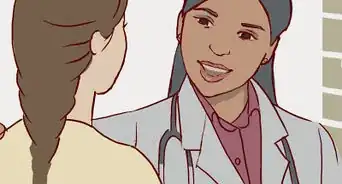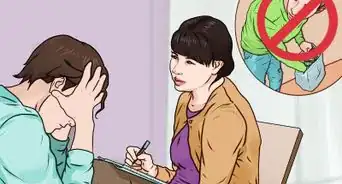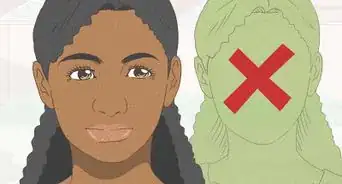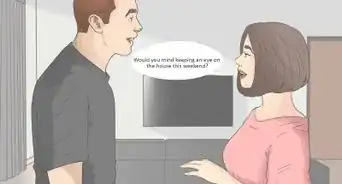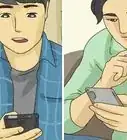This article was co-authored by Trudi Griffin, LPC, MS. Trudi Griffin is a Licensed Professional Counselor in Wisconsin specializing in Addictions and Mental Health. She provides therapy to people who struggle with addictions, mental health, and trauma in community health settings and private practice. She received her MS in Clinical Mental Health Counseling from Marquette University in 2011.
There are 9 references cited in this article, which can be found at the bottom of the page.
This article has been viewed 16,570 times.
Trichotillomania is a hair pulling disorder that causes significant distress to the affected person. As a result of the hair pulling, bald patches or sores can occur, making the person feel ashamed or embarrassed about their appearance.[1] This may lead to chronically wearing hats or head coverings. While trichotillomania is a difficult disorder to have, it can also be difficult to support a friend with trichotillomania. As a friend or family member, your role is important to helping your loved one recover and live a fulfilling life.
Steps
Supporting Your Loved One
-
1Learn about trichotillomania. One of the most helpful things you can do is to learn and understand trichotillomania. Trichotillomania is considered an anxiety and impulse disorder and involves a person responding to an urge related to hair. This then leads to pulling the hair out. It’s likely the person with trichotillomania feels shame or embarrassment around these habits. They may isolate or try to hide the problem from others.
- The person can experience an endless cycle of stress, the urge to pull hair, tension from not pulling hair, relief after pulling hair, then shame or embarrassment for engaging in the process.
- For more information about trichotillomania, check out How to Diagnose Trichotillomania.
-
2Respond to your loved one’s anxiety. Some people use hair pulling as a coping mechanism for anxiety. This kind of behavior is similar to biting one’s nails, yet can be more severe and damaging to the body and more shameful to the person. Anxiety appears to be a strong trigger for trichotillomania.
- If you notice your loved one is anxious, try to help find ways to help your loved one handle the anxiety. For example, you can engage in a relaxing activity together. For more information, check out How to Control Anxiety.
- Learn more about anxiety by reading How to Handle People With Anxiety Problems.
Advertisement -
3Be present in your loved one’s life. Trichotillomania can lead to deep shame and embarrassment. Sometimes, the shame can result in isolation from other people.[2] Be a friend to your loved one. Even when things are difficult, show that you are willing to love and support them. Invite your loved one to social events and fun gatherings and help them to feel included in social events.
- If your loved one starts to isolate, gently check on them and offer to spend time together.
-
4Support healthy behaviors. Support your loved one’s efforts to live a healthy life. Provide praise for positive steps in coping with trichotillomania, like managing stress and anxiety in different ways. Encourage your loved one to get restful sleep each night, eat healthfully, and exercise.[3]
- Offer to engage in healthy activities with your loved one. For instance, invite your loved one over for a healthy meal, or offer to go on a walk or take a hike together to get some exercise.
-
5Assure your loved one that you care. Tell your loved one that you care about them. Show your support and care by offering to help out with everyday tasks. Offer to talk about the trichotillomania, or to help your loved one get their mind off of any urges.[4]
Talking about Trichotillomania with Your Loved One
-
1Bring up a discussion of trichotillomania. If your loved one hasn’t come to you about the disorder yet you are worried about the trichotillomania, carefully bring it up. Remember to approach the person with love, care, compassion, and respect. Be sure to listen carefully.[5]
- A direct confrontation of the behavior may make the person feel defensive. Instead, try to establish that you are a safe, non-judgmental person they can talk to openly.
- Try saying something like, “I’m here because I care, and I want to listen. Can you tell me about what you're feeling?” or “It seems like you are going through a difficult time. I want you to know I'm here for you no matter what, and I want to support you however I can.”[6]
-
2Ask whether your loved one is receiving support. If you notice hair pulling behaviors in your loved one or your loved one tells you they have trichotillomania, ask what treatment options they are getting. Ask what they want and what your loved one is already receiving.[7] Does your loved one need help telling other people about the disorder?
- Is your loved one receiving therapy? Has the disorder been checked out by a medical doctor? Do other friends and family members know about the disorder? What do they want from friends and family?
-
3Be gentle in your responses. It takes incredible courage for someone to admit that they have trichotillomania. If a loved one tells you about the disorder, remember that it can be very difficult to admit a problem to someone else. It can be difficult to share something personal that makes someone feel ashamed or embarrassed. Remind yourself of the vulnerability this person is sharing with you. If the person is struggling, don’t react harshly or with a matter-of-fact attitude. Instead, be gentle in how you interact. While it may be easy for you to say “Just stop pulling your hair,” avoid giving advice or responding in a less-than-sensitive manner.[8]
- Instead of focusing on the behaviors, help your loved one focus on the emotions that cause the distress. Ask, “What are you feeling stressed about? How can I help?”
-
4Support the person without preaching. Be loving, empathetic, and supportive toward your loved one. Even when tempted, avoid preaching or demanding certain behaviors. If you are tempted to preach, remind yourself that you are not the expert on your loved one or the disorder. Only your loved one knows what it’s like to suffer in having trichotillomania.[9]
- Be willing to listen and support your loved one. If you’re struggling in how to respond, say, “That sounds really difficult,” or, “I’m sorry you experience this.”
Involving Professionals in Treatment
-
1Assist in seeking medical and psychological support. Medical and psychological intervention are often needed to help a person with trichotillomania to stop.[10] Encourage your loved one to get help.
- Offer to help find resources for your loved one. Look into finding a therapist who specializes in trichotillomania and anxiety disorders. Offer to help the person get a medical appointment or come along for support.
-
2Encourage joining a support group. Some people find it helpful to attend a support group for trichotillomania. It can be comforting to meet with other people who have similar struggles. Your loved one may feel relieved that they do not suffer alone and that other people can relate to the problems.[11]
- Offer to go to the first meeting with your loved one.
-
3Encourage seeking cognitive-behavior therapy (CBT). CBT is a preferred method of treating trichotillomania. CBT functions by examining negative or maladaptive thoughts and behaviors, bringing awareness to them, then changing them to be more positive and beneficial. By working with a person’s thoughts and behaviors, change can occur effectively.[12]
- Check in to habit removal therapy. This type of therapy looks at habits and aims to reprogram them. By using techniques to help awareness, develop a different response, gain motivation, then generalize the skills, trichotillomania can be beneficially treated.[13]
-
4Suggest medication. In some cases, medication can help ease symptoms associated with trichotillomania. Taking medication should be carefully considered, as many medications include side-effects. Typically, medications used are antidepressant medications such as SSRIs and SNRIs. Some typical medications include Paxil, Luvox, Zoloft, Celexa, Serzone, Effexor and Anafranil.[14]
- Have your loved one discuss medications with a trained psychological medication expert, such as a psychiatrist.
-
5Take care of yourself. While you are helping your loved one cope with their disorder, it’s important not to lose yourself in the process. Keep in mind your own health and care while helping someone else; don’t get so involved that you forget to take care of yourself. Take time each day to do things that are relaxing and fun for you.[15]
- If need be, seek your own support. You can get your own counseling or join a support group of caregivers for people with mental illness.
References
- ↑ http://www.mayoclinic.org/diseases-conditions/trichotillomania/basics/definition/con-20030043
- ↑ http://www.nhs.uk/conditions/trichotillomania/Pages/introduction.aspx
- ↑ http://www.campusmindworks.org/students/helping/how_do_i_support.asp
- ↑ https://www.mentalhealth.gov/talk/friends-family-members/
- ↑ https://www.mentalhealth.gov/talk/friends-family-members/
- ↑ https://www.mentalhealth.gov/talk/friends-family-members/
- ↑ http://www.campusmindworks.org/students/helping/how_do_i_support.asp
- ↑ https://adaa.org/learn-from-us/from-the-experts/blog-posts/consumer/four-things-not-say-person-trichotillomania
- ↑ https://adaa.org/learn-from-us/from-the-experts/blog-posts/consumer/four-things-not-say-person-trichotillomania
- ↑ http://kidshealth.org/en/teens/trichotillomania.html#
- ↑ https://www.mayoclinic.org/diseases-conditions/trichotillomania/diagnosis-treatment/drc-20355193
- ↑ http://www.nhs.uk/conditions/trichotillomania/Pages/introduction.aspx
- ↑ https://www.nhs.uk/conditions/trichotillomania/
- ↑ http://psychcentral.com/lib/compulsive-hair-pulling-understanding-and-treating-trichotillomania/?all=1
- ↑ http://www.campusmindworks.org/students/helping/how_do_i_support.asp
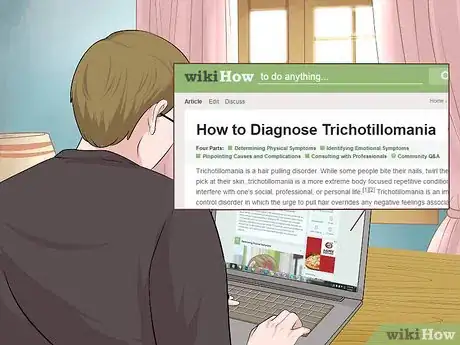
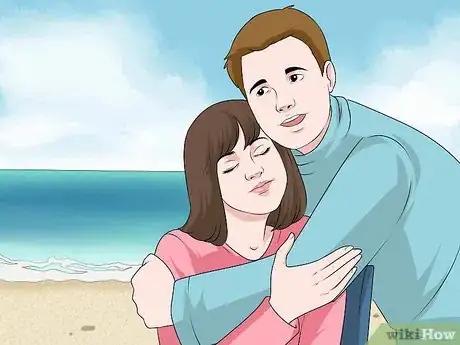
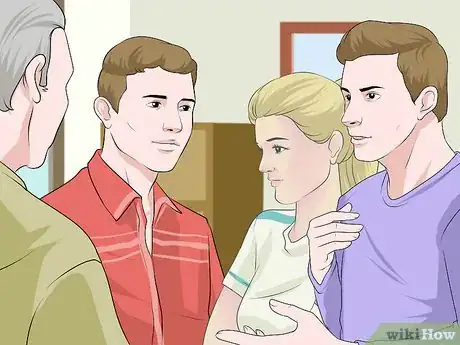
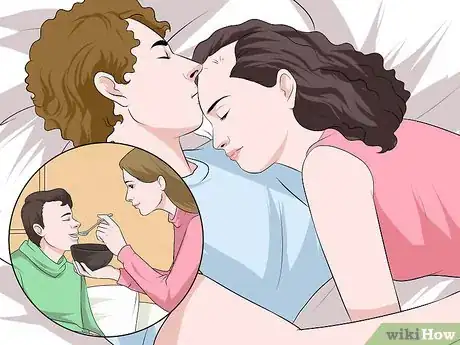
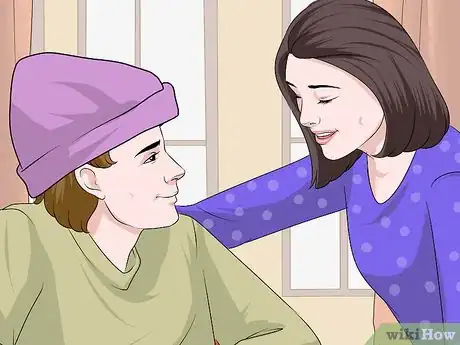
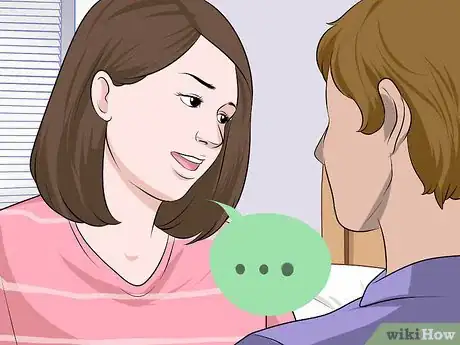
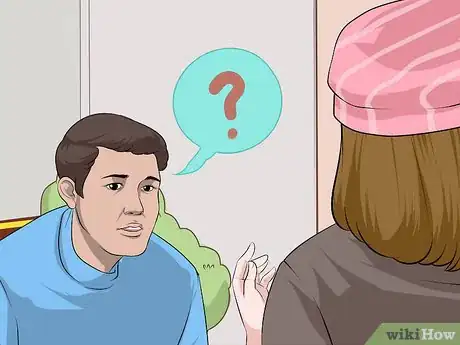
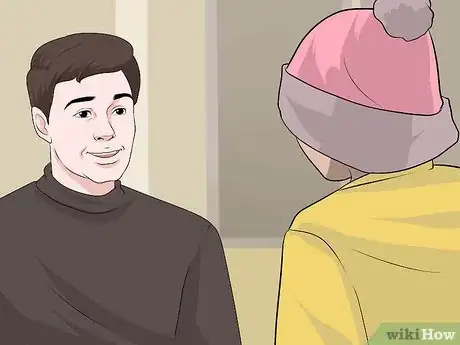
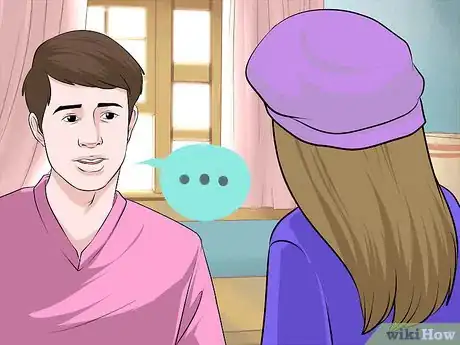
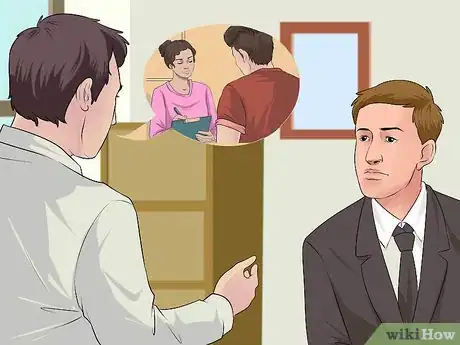
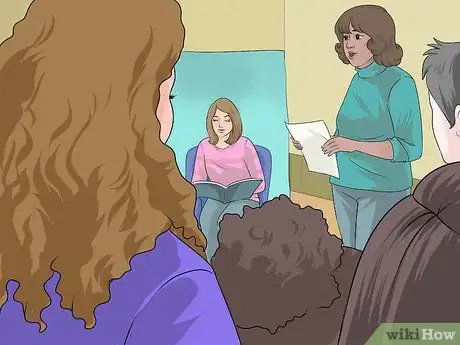
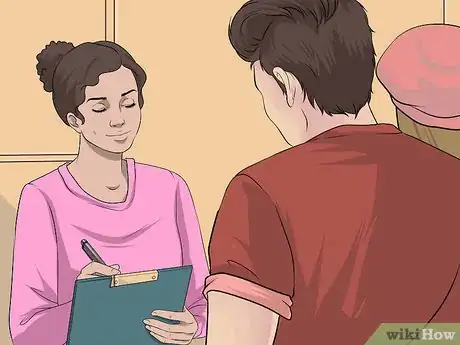





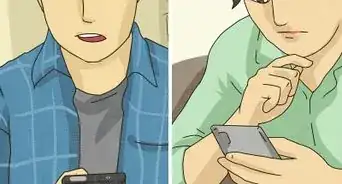
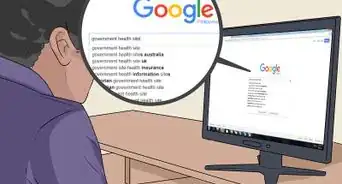

-Step-17-Version-2.webp)
